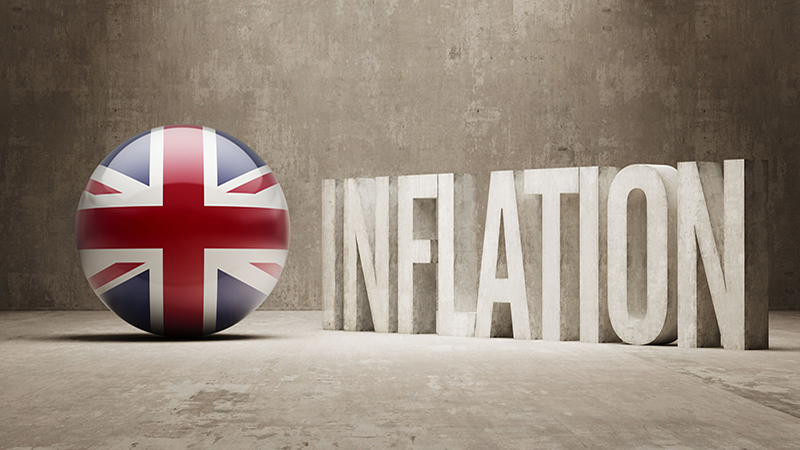The UK consumer price index (CPI) remaining at 6.7% in September raises questions as to “whether the government will meet its target of halving inflation by the end of the year”, according to several industry commentators, with some warning that inflationary figures have remained “trapped” by various push and full factors.
Today (18 October), the Office for National Statistics (ONS) announced that the UK CPI would stay at 6.7% to halt consecutive months of easing as a downward trend in food inflation was offset by rising fuel prices.
Core inflation, which strips out energy and food prices, eased a single percentage point to 6.1% on the previous month.
“September’s stickiness rather ruins the narrative,” said AJ Bell head of financial analysis Danni Hewson. “UK inflation is not making a slow but sustained backtrack, it’s got trapped between the push and pull of prices at the pump and those on supermarket shelves.
“For households the current situation probably feels a bit like being given a bonus then having it all taxed away. Anyone who’s had to fill up their vehicle in the last few weeks can be forgiven for uttering a few expletives as the numbers kept climbing up, while those who’ve stocked up on milk, eggs and cheese should have had a more pleasant experience.”
See also: Liontrust suffers £1.6bn of net outflows in Q3 as CEO warns of impending restructures
How will September’s inflation print affect policymakers?
Industry commentators have pondered what today’s inflation print could mean for policymakers ahead of the Bank of England Monetary Policy Commitee (MPC) meeting on 2 November.
Hewson added: “Price volatility happens all the time but at the moment it’s raising big questions about whether the government will meet its target of halving inflation by the end of the year and, more importantly, how it might impact BoE policymakers ahead of their next interest rate decision.
“There are no easy answers here. On the one hand, we know the impact of energy price hikes should finally wash through next month, but the question is how much of that cooling affect will be tempered by continued global uncertainty which is pushing up the price of oil.
“And with wage growth now outstripping inflation people might feel they’ve got a bit more cash to splash on a night out at the theatre or a night in a hotel – a decision which could give the green light for these sectors to raise prices once again. Because there is a lag, some businesses held off on raising prices and are now finding they have no choice but to do so, especially if customers keep on coming.
“And there is also a lag when it comes to the impact of interest rate hikes, a lag which would have been at the forefront of the minds of MPC members last time out and is likely to continue to influence their decision-making next month. To that end markets are still pretty wedded to the notion that rates won’t change next month, but there is a degree of uncertainty that wasn’t present yesterday and that’s reflected in share prices this morning.”
GAM investment director Charles Hepworth believes the print will not see the BoE alter interest rates.
He said: “While the BoE prefers to use core inflation measures, when assessing the need for further rate hikes which excludes the inherent volatility in fuel prices, the core measure surprised marginally also coming in at 6.1%.
“This came ahead of an expectation of a 6% rise but down from the 6.2% level seen the previous month. This inflation print however is probably not enough for the Bank to go more restrictive in a little over two weeks time.”
Commenting on the 50bps CPIH increase – which includes housing costs – Jeremy Batstone-Carr, Raymond James European strategist, said: “Though inflation [including housing costs] saw a timid increase of 0.5% in September, this is unlikely to spiral into a full revival and will not unduly perturb the Bank of England ahead of the next rate setting decision.
“However, despite today’s figures there are signs that inflation will continue to subside in the coming months,” he added.
“The slower increase in food prices will be a welcome relief to hard-pressed households, while the sharp fall in the Ofgem energy price cap will further reduce price pressures in October. Economic activity remains subdued and the labour market is slowly loosening, indicating that inflation should fall enough to hit the government’s desired year-on-year target of 5% or lower by December.”










